
The Chef’s Haven, A Culinary Journey Beyond the Kitchen
This is the kind of day that Yoan, Hamasi, Edy, and Bayu cherish—the cool morning breeze, the sun’s gentle kiss awakening the world. The wheels kiss the asphalt, gripping the road as they glide toward the heart of Blitar, a quiet town awaiting their arrival. Cheerful faces, eyes sparkling with enthusiasm as if emitting various colors that contrast so much with the aging blue sky. The atmosphere makes them incredibly happy.
Blitar City is a small city that stores many potential tourist attractions that can be used as alternative tourist destinations for travelers who dare to enrich empirical experiences with local and authentic things. Blitar, nicknamed the 'retirement city', can feel the local atmosphere and nuances. The city is ideal for travelers who want to spend their vacation to stay for a few days.
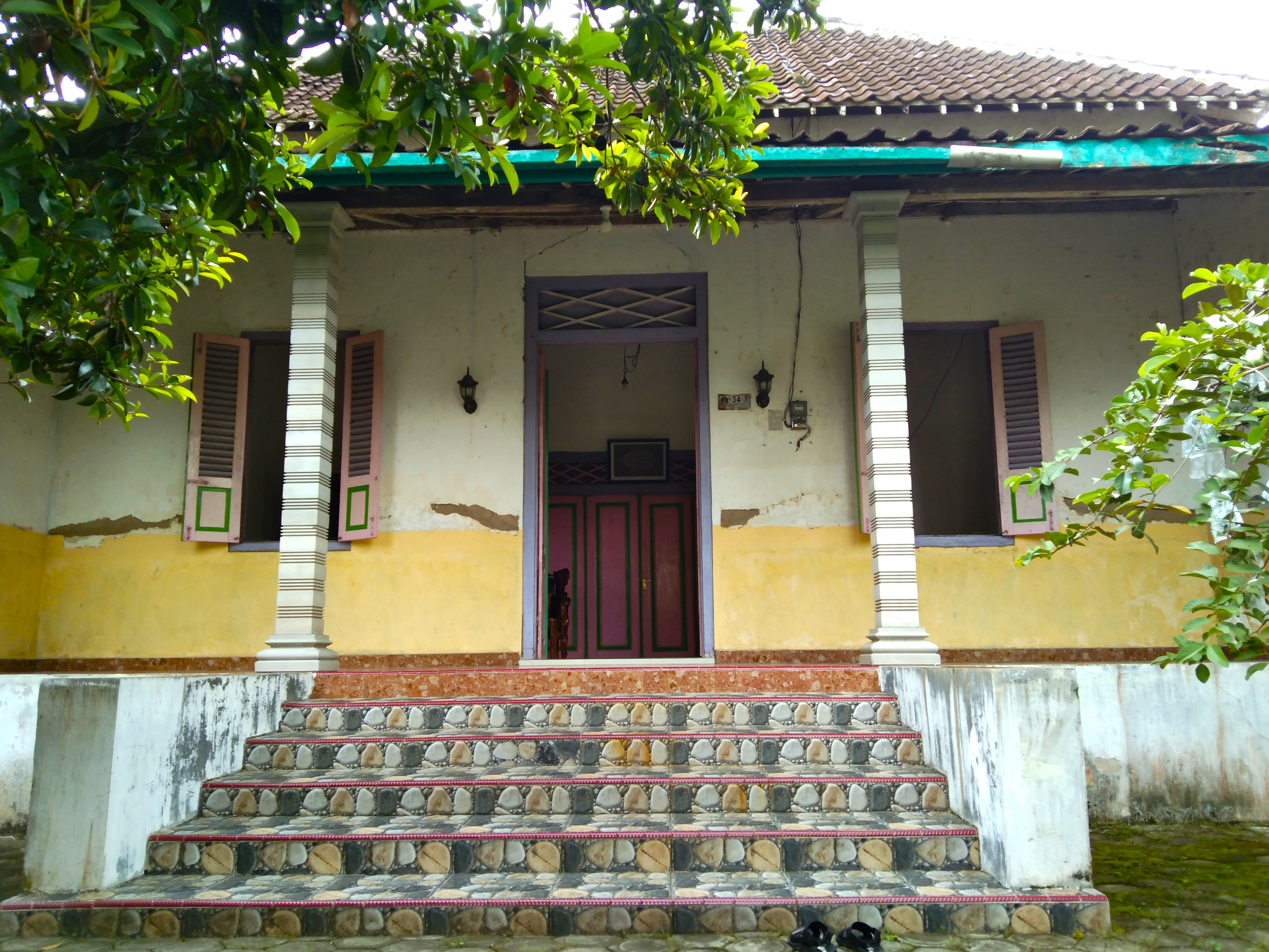
They headed to a simple Javanese-style family home owned by a chef named Mr. Budi. He is an experienced chef. He once lived abroad and worked in a restaurant and cafe. His experience and ability to create food are unquestionable. Both European and local cuisine. He uses local spices to give a touch of European cuisine or traditional cuisine.
Bapak Budi, is not just a chef. He is also a fruit farmer who has a fruit plantation not far from his house. The location of the guava plantation is in the middle of the rice fields approximately 400 meters. And, the starfruit garden with a red brick fence is located next to his house which is separated by a small village road. Amidst the starfruit grove, a tapestry of spice plants flourishes, their fragrant leaves whispering the secrets of flavors destined for the kitchen. The location of Mr. Budi's house is in the middle of the village, where the village atmosphere is still thick.
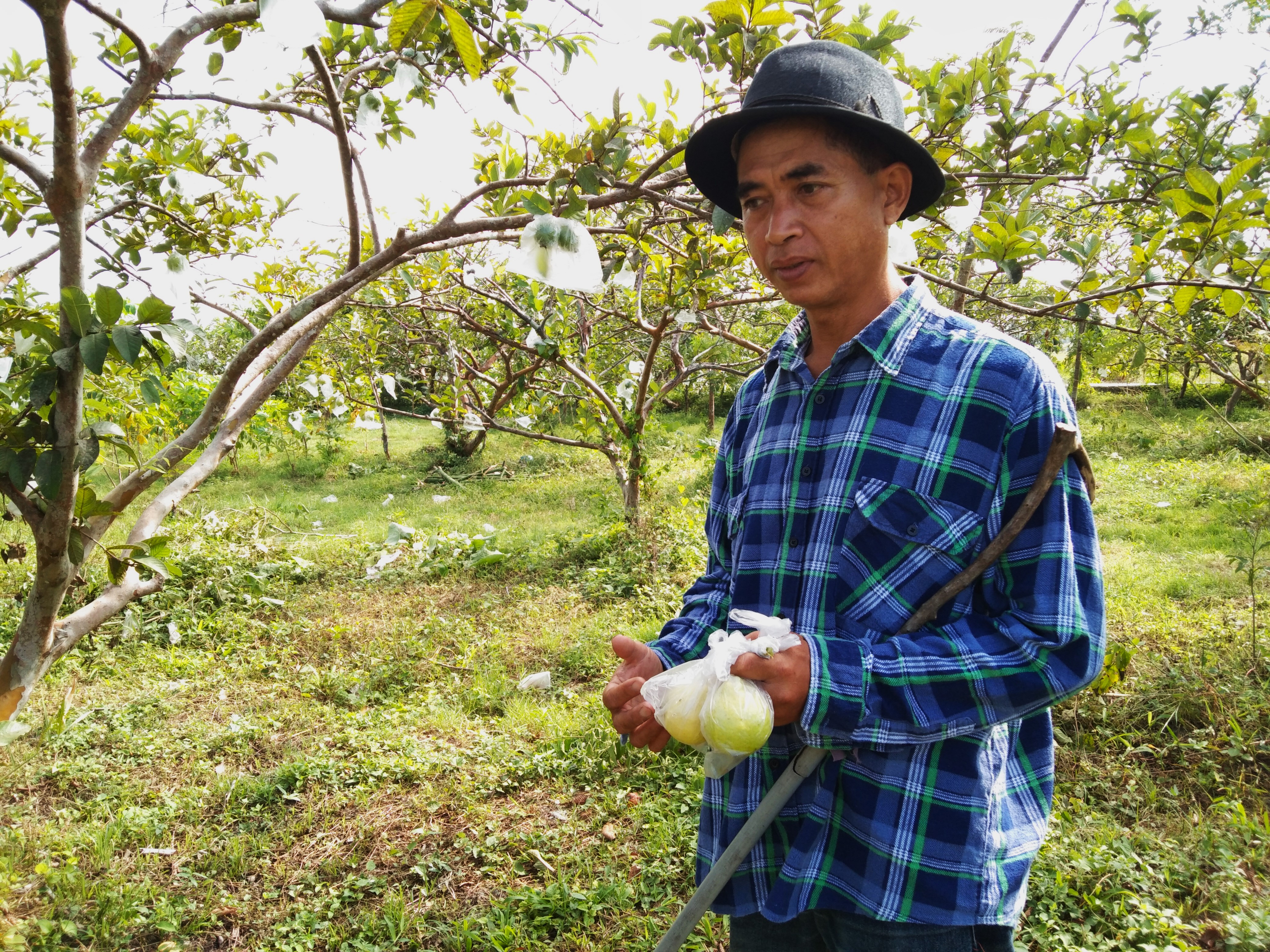
Arriving at Mr. Budi's house, several travelers were greeted by a typical village road, small on the right and left are short wall fences of residents' houses. The village atmosphere is still relatively quiet with various fruit trees in front of residents' houses. In the village, there are still many banana trees. Banana plants stand as the village’s silent emblem, their leaves a cherished gift, woven into the fabric of daily life, for no village feels complete without their shade and the flavors they help create. Or to wrap food or traditional dishes. The banana tree is also a reference for neighbors if they do not have one. Banana trees are friends of the villagers.
On the side of the road in front of the house, a 'mbois' man in a flannel shirt and wearing a 'laken' hat stood waving at several travelers who had opened their car windows since entering the village road. The typical greeting is "Welcome to my house!" with a voice that is not loud but firm. Then Mr. Budi invited them to park their cars in his yard. They got out and Mr. Budi reached out and shook hands tightly. A warm smile full of family from the owner of the house.
They stepped into an old Javanese-style house, some parts of the house showed their original materials. Arriving in the living room, the travelers felt relieved to see the spacious room. They observed the surroundings starting from the tall wooden windows, identical to old buildings. The high roof of the house with ventilation on the walls of the house seemed like eyes watching them. Mr. Budi served a warm drink as an official welcome. For Javanese people, serving a “hot” or warm drink indicates that the homeowner wants the guest to stay longer.
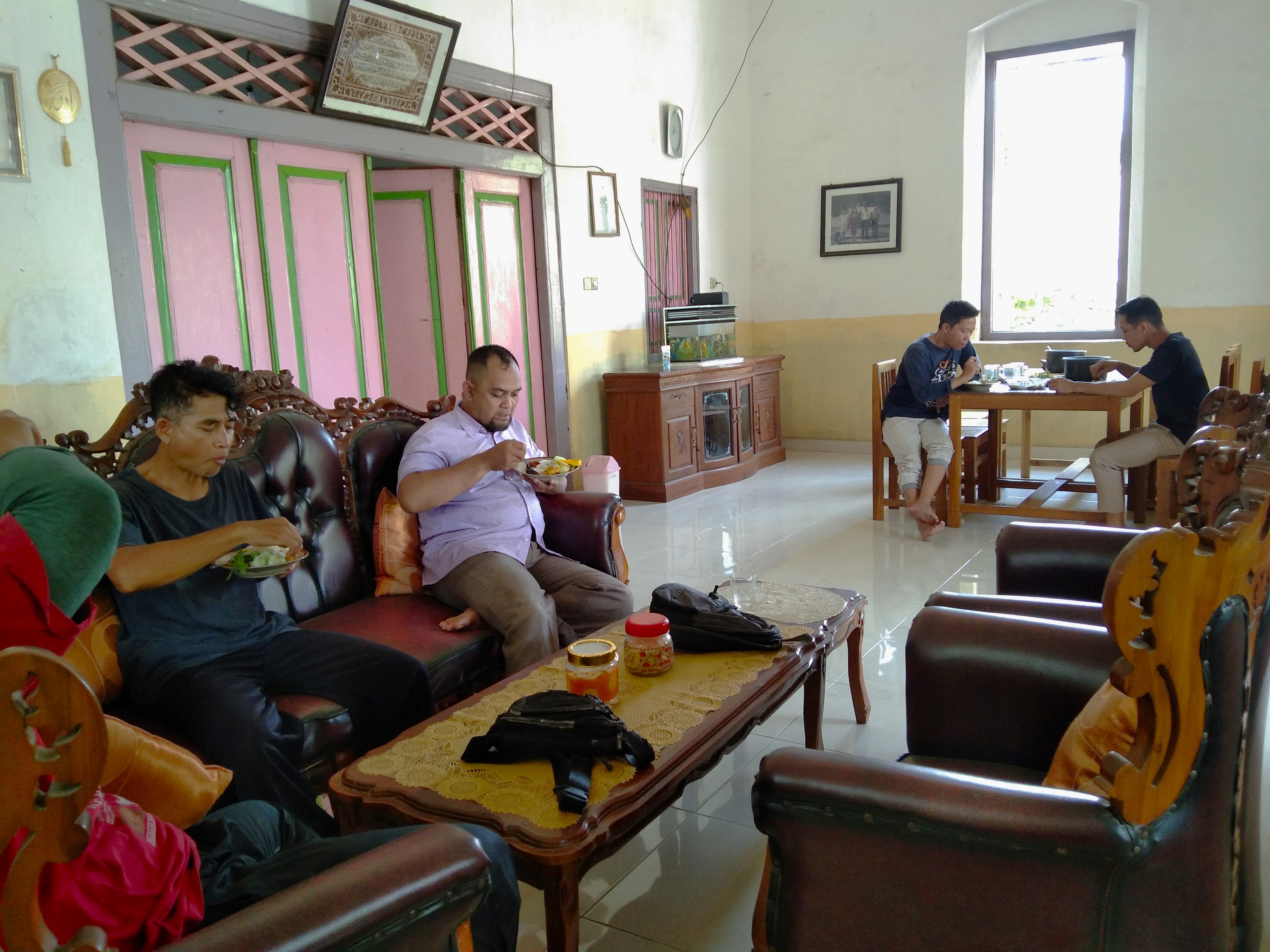
Then, Bapak Budi invited the travelers to walk to the guava garden. Following the village road with many bends, automatically and unconsciously as if counting the houses of the residents passed until without realizing it, they arrived at a road with a view of the rice fields. Entering a small grassy road to the guava plantation. When they arrived there Bapak Budi told us some tips about the guava plantation and how it's cared.
Then move to the tree whose fruit was ready to be picked. Bapak Budi guided the travelers through the branch, their hands filling baskets with ripe guavas, which they carried home to the kitchen, nestled beside the house. There, the fruit was washed, its freshness lingering in the air, before being gently drained in preparation for the meal to come.
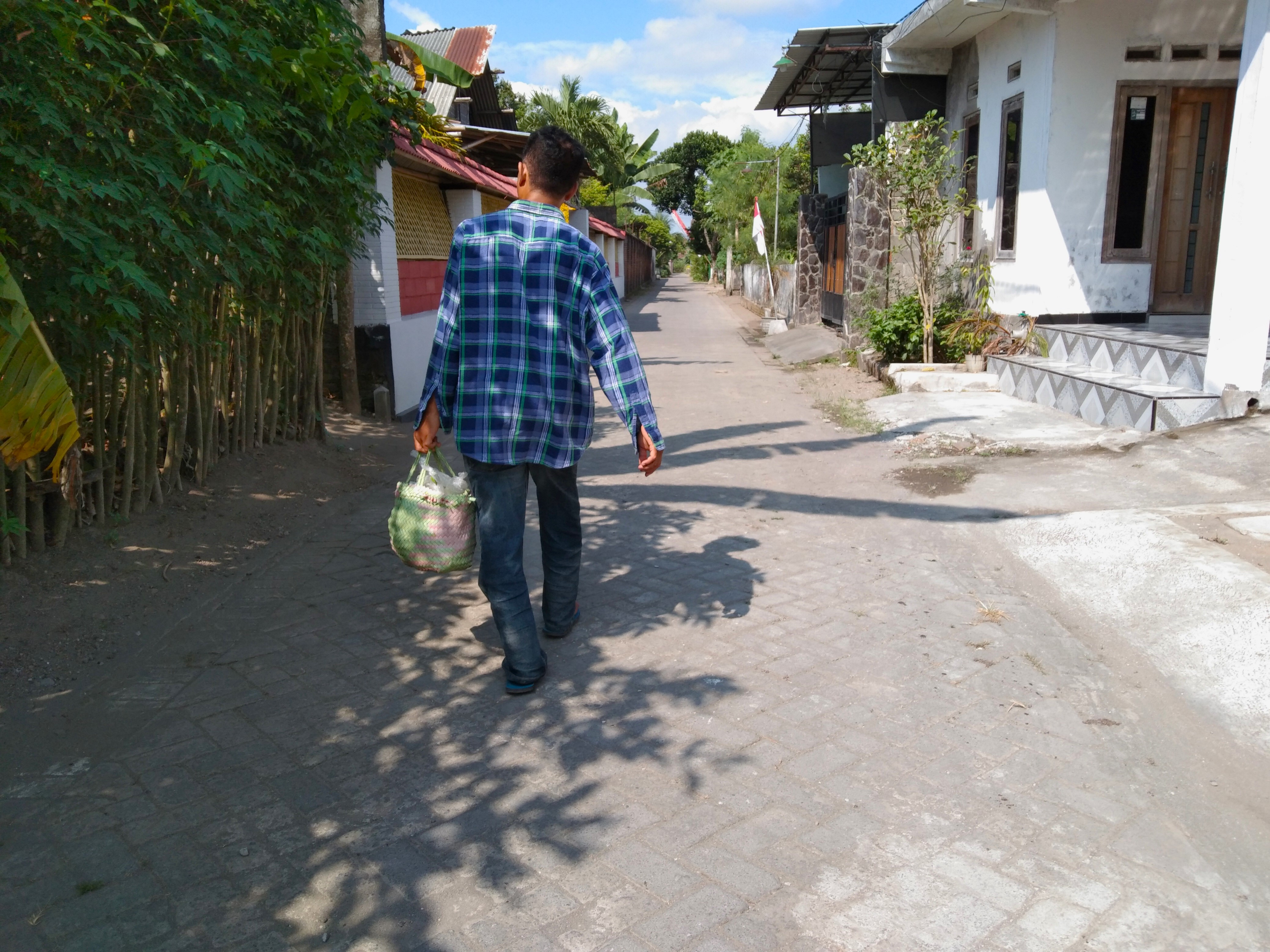
Bapak Budi began to take out the cooking equipment, some of which was brought from overseas when he lived and worked there for several years. As the cooking began, Bapak Budi, with practiced hands, gathered fresh vegetables, flour, and spices, weaving his lessons on making pizza and more. His deft touch with each tool spoke of years of mastery, a silent testament to his unwavering expertise in the art of cooking.
With great patience, he guided and directed the hands of travelers in using cooking equipment, one of which was a knife. And, he also taught the technique of holding and swinging it. Mixing spices with the right composition, to produce the right taste. And, although the kitchen is not as large as a restaurant kitchen, it is enough for several people. The activities in the kitchen are finished, then go to the fireplace which is only about 7 steps from the kitchen.
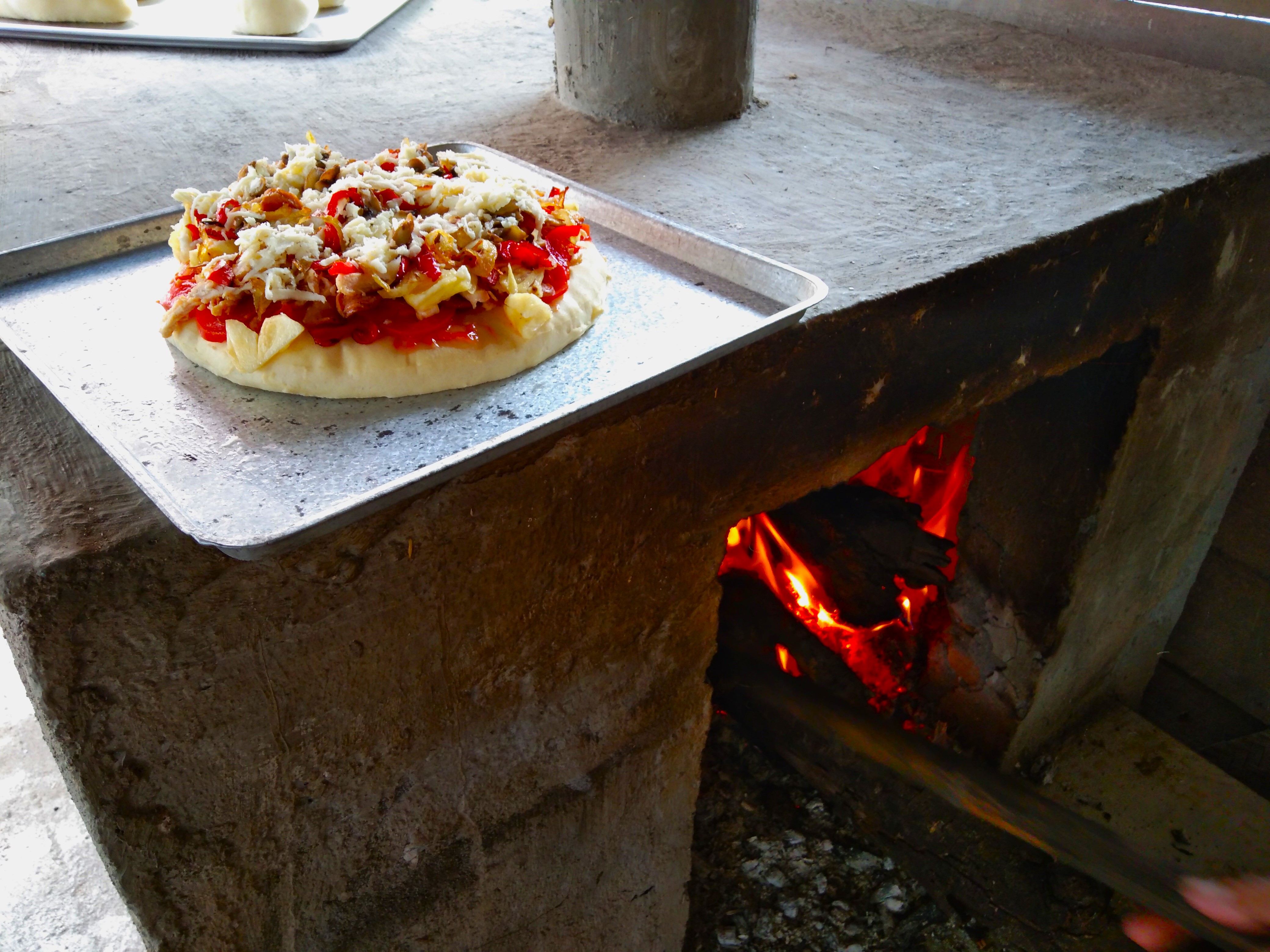
Next, cooking local dishes namely 'clear vegetable soup' and 'stir-fried bean sprouts' which made the travelers re-enter the kitchen. Mr. Budi had prepared several types of vegetables and several types of spices as seasonings. They moved their hands again with knives in their hands. They practiced the techniques taught by Mr. Budi again. Moving the knife, swinging the knife from above pressing down, slicing sideways, and so on. And, their hands began to adapt quickly.
Mr. Budi smiled proudly that they had succeeded in implementing what he taught in a short time. A few moments later, the cooking was finished. Clear vegetable soup and stir-fried bean sprouts with local flavors were ready to be served and enjoyed.

In Javanese culture, cooking is not just a process of being. However, how cooking can teach us patience, 'setiti' trains the sensitivity of the ear to listen to what is being cooked, while focusing on what is being done. Therefore, cooking requires energy and certainly expends energy. Spices make the taste of food delicious, but there is a more essential factor, namely when the stomach is hungry, eating will feel delicious.
After enjoying the food served for their lunch, Bapak. Budi invited them to enter the star fruit garden next to his house. The travelers entered the garden and saw the expanse of the star fruit garden. Mr. Budi showed them some spice plants, one of which was a bay tree planted in the star fruit garden. In addition to spice plants, there were also other fruit plants such as star fruit, banana trees, and other fruit plants. Mr. Budi also explained how to care for star fruit plants. The care is much different from guava trees. They chatted casually in the star fruit garden while walking towards each star fruit tree.
Pointing to several trees that grew about 1 meter, he said; "Do you see those two trees?" They are kepel trees and Langsep (Lansium domesticum). Kepel (Stelechocarpus burahol) are rare plants. Their fruits are round and brown and attached to the tree trunk. The fruit smells very fragrant. It is said that this fruit used only to be planted around the palace and its fruit was consumed by the queen or the king's daughter to cleanse themselves of dirt and unpleasant odors caused by women's menstruation. There is also a tree in front of the house, it is already big but has not yet borne fruit.
As evening fell unnoticed, the travelers, immersed in the warmth of Bapak Budi’s hospitality, had spent the day strolling through the village, savoring guavas as sweet desserts, sipping fresh juice, and cooking together. It was a journey not just through flavors but through memories, where the taste of local spices told stories of the land, and the kindness of Bapak Budi and his family echoed the cherished simplicity of visiting a beloved grandfather's home.
Tag: accomodation, architecture, architecturelovers, coffe, coffeattraction, coffebean, community, cooking, culinary, culture, culturelovers, experience, explore, familytravelers, green, hiking, hospitality, humaninterestfotographer, indonesianculturaltourism, indonesiantourism, local, locallovers, localtea, nature, naturelovers, plantations, spice, traditional, travel, travelersfotographer, trekking, village, visit